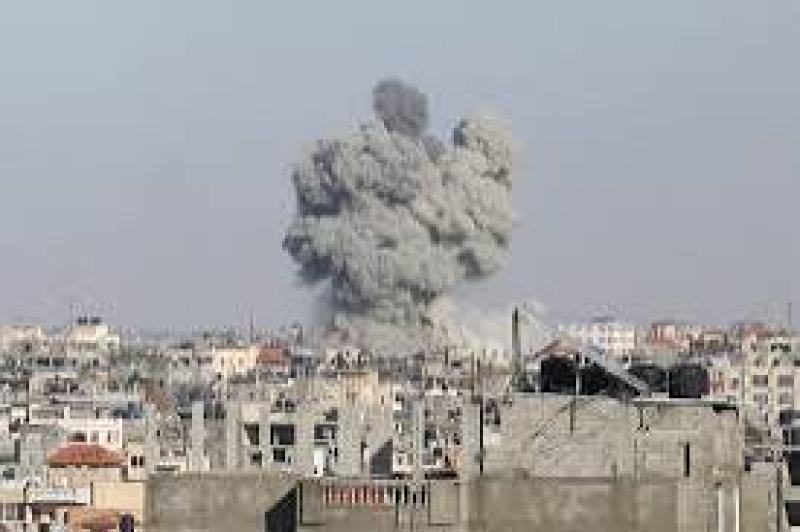- Puppet show enchants Children as Boi Mela comes alive on day 2 |
- DSCC Admin Salam’s drive to make South Dhaka a ‘clean city’ |
- 274 Taliban Dead, 55 Pakistan Troops Killed |
- Now 'open war' with Afghanistan after latest strikes |
- Dhaka's air quality fourth worst in world on Friday morning |
Israel Orders Evacuation of Rafah Amid Escalating Conflict

The Israeli military has issued extensive evacuation orders for the majority of Rafah, a city in the southern Gaza Strip, on Monday, signaling the possibility of a large-scale ground operation in the area.
This decision follows Israel's resumption of air and ground operations against Hamas earlier this month, after ending a temporary ceasefire. In March, Israel also halted all supplies of food, fuel, medicine, and humanitarian aid to Gaza's 2 million Palestinians, aiming to pressure Hamas into agreeing to new terms for a truce.
The evacuation orders affect most of Rafah and surrounding areas, instructing Palestinians to move to Muwasi, a coastal area already burdened with overcrowded tent camps. The orders come during Eid al-Fitr, a Muslim holiday that traditionally marks the end of Ramadan with celebrations.
Israel had launched a large-scale operation in Rafah in May of the previous year, resulting in significant destruction, the capture of a strategic corridor along the border with Egypt, and control over the Rafah crossing, Gaza’s only non-Israeli controlled exit point. Despite an agreement under the January ceasefire to withdraw from this corridor, Israel has refused, citing concerns about weapons smuggling.
Israel's military actions are aimed at pressuring Hamas to release the remaining 59 hostages it holds, 24 of whom are believed to still be alive. Israel also demands Hamas disarm and leave Gaza, conditions not covered in the ceasefire, which Hamas has rejected.
Israeli Prime Minister Benjamin Netanyahu confirmed on Sunday that Israel intends to assume control of Gaza's security post-conflict and implement U.S. President Donald Trump's proposal for resettling Gaza’s population in other countries, a plan Palestinians view as forced expulsion. Human rights experts have warned that such a plan could violate international law.
Hamas maintains its stance on the original ceasefire agreement, which called for the release of all hostages in exchange for a long-term ceasefire and Israeli withdrawal. However, full negotiations have not yet occurred, with only preliminary talks held in February.
The conflict began on October 7, 2023, when Hamas militants attacked Israel, killing around 1,200 people, mostly civilians, and taking 251 hostages, many of whom have since been released. In retaliation, Israel's offensive has resulted in over 50,000 Palestinian deaths, according to Gaza’s Health Ministry, though the exact toll of civilians versus combatants remains unclear.
At its peak, the war displaced up to 90% of Gaza's population, leaving widespread destruction and an uncertain future for reconstruction.

